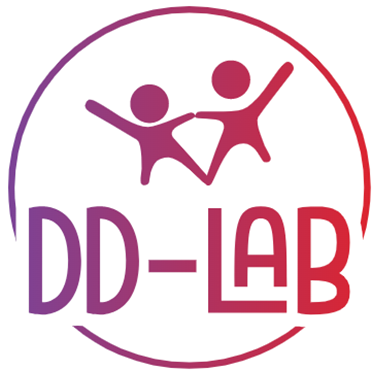Autism Spectrum Disorder
Research Area
Autism Spectrum Disorder
”Autistic people see the world in a unique way that’s different from everyone else, and that’s something to embrace.
Chris Bonnello
”We need to focus on ability, not disability.
Temple Grandin
Our research explores key developmental processes in autistic children and adolescents, with a focus on factors that influence their everyday experiences and quality of life. We study emotional regulation and psychophysiological functioning to understand how they manage emotions and respond to stress in daily situations. We investigate socio-emotional skills and emotion recognition, examining how they perceive and interpret others’ emotional cues and how these processes relate to social interactions. We also explore visuospatial, sensory, and motor processing, considering how differences in these fundamental domains shape learning and participation in daily activities. Finally, we examine anxiety and depression, two common co-occurring conditions, to better understand how internalizing symptoms emerge and interact with cognitive and emotional development in autism.
We investigate a range of topics including:
- Emotional regulation and psychophysiological functioning: We explore how children and adolescents with ASD regulate their emotions in everyday situations and how their physiological responses—such as heart rate variability and skin conductance—relate to emotional and behavioral regulation. Our aim is to better understand the underlying mechanisms and to identify potential targets for intervention.
- Socio-emotional skills and emotion recognition: We study how individuals with ASD perceive, interpret, and respond to social and emotional cues, such as facial expressions and tone of voice. These abilities are essential for social interactions, and our research aims to shed light on both strengths and challenges in these areas, to inform more tailored support strategies.
- Visuospatial, sensory, and motor processing: We examine how children and adolescents with ASD process visual and spatial information, respond to sensory stimuli, and develop motor coordination. These areas are often affected in autism and can impact learning, independence, and participation in daily activities. Understanding these processes helps us to design better assessment tools and interventions. If you’re interested, please visit Progetti pilota regione Veneto – Fondazione DARE to learn more about a specific research project in this field
- Anxiety and depression: We investigate the emotional well-being of individuals with ASD, with particular attention to symptoms of anxiety and depression, which are common yet often overlooked. Our research focuses on identifying risk factors and early signs, as well as evaluating strategies to promote mental health and resilience.
Explore other recommended sources to better understand Autism Spectrum Disorders:
https://www.autism-insar.org/ – https://www.autismeurope.org/
Peer-Reviewed Journal Articles
Cardillo, R., Marino, C., Collini, M., Vieno, A., Spada, M. M., & Mammarella, I. C. (2025).
Browsing problematic social media use in autism spectrum disorder: The role of social anxiety. Addictive Behaviors, 162, 108225.
Lievore, R., Cardillo, R., & Mammarella, I. C. (2025).
Let’s face it! The role of social anxiety and executive functions in recognizing others’ emotions from faces: Evidence from autism and specific learning disorders. Development and Psychopathology, 37(1), 451–463.
Lievore, R., & Mammarella, I. C. (2025).
Trait and state mathematics anxiety in autistic and non-autistic school-aged boys. Autism, 29(5), 1209–1223.
Crisci, G., Cardillo, R., & Mammarella, I. C. (2024).
Social Functioning in Children and Adolescents with ADHD and Autism Spectrum Disorder: A Cross-Disorder Comparison. Journal of Clinical Child & Adolescent Psychology, 53(3), 489–502.
Giofrè, D., Lievore, R., Allen, K., Tonizzi, I., Mammarella, I. C., & Toffalini, E. (2024). Understanding sex/gender differences in intelligence profiles of children with Autism: A comprehensive WISC meta-analysis. Research in Developmental Disabilities, 154, 104854.
Lievore, R., Lanfranchi, S., & Mammarella, I. C. (2024).
Parenting stress in autism: Do children’s characteristics still count more than stressors related to the COVID-19 pandemic? Current Psychology, 43(3), 2607–2617.
Lievore, R., Maffei, A., Sessa, P., & Mammarella, I. C. (2024).
A Comprehensive Investigation of Social Anxiety and Social Evaluative Stress in Autistic Children and Adolescents and Specific Learning Disorders. Journal of Autism and Developmental Disorders.
Lievore, R., Crisci, G., & Mammarella, I. C. (2023).
Emotion Recognition in Children and Adolescents with ASD and ADHD: A Systematic Review. Review Journal of Autism and Developmental Disorders.
Cardillo, R., Lievore, R., & Mammarella, I. C. (2022).
Do children with and without autism spectrum disorder use different visuospatial processing skills to perform the Rey–Osterrieth complex figure test? Autism Research, 15(7), 1311–1323.
Lievore, R., Cardillo, R., Lanfranchi, S., & Mammarella, I. C. (2022).
Social anxiety in children and adolescents with autism spectrum disorders. In International review of research in developmental disabilities (Vol. 63, pp. 131–186). Elsevier.
Mammarella, I. C., Cardillo, R., & Semrud-Clikeman, M. (2022).
Do comorbid symptoms discriminate between autism spectrum disorder, ADHD and nonverbal learning disability? Research in Developmental Disabilities, 126, 104242.
Orefice, C., & Mammarella, I. C. (2022).
Disturbo non verbale (visuo-spaziale) e Disturbo dello spettro dell’autismo senza disabilità intellettiva: Come la valutazione delle abilità visuo-spaziali può contribuire alla diagnosi differenziale. Temi di Psicologia dell’Ordine degli Psicologi della Campania, 1(4), 1.
Thorell, L. B., Fuermaier, A. B. M., Christiansen, H., Steinmayr, R., Baeyens, D., De La Peña, A. G., Groom, M. J., Idrees, I., Van Der Oord, S., Van Den Hoofdakker, B. J., Luman, M., Mammarella, I. C., & Skoglund, C. (2022).
Distance learning during the COVID-19 pandemic for children with ADHD and/or ASD: A European multi-center study examining the role of executive function deficits and age. Child and Adolescent Psychiatry and Mental Health, 16(1), 101.
Cardillo, R., Mammarella, I. C., Demurie, E., Giofrè, D., & Roeyers, H. (2021).
Pragmatic Language in Children and Adolescents with Autism Spectrum Disorder: Do Theory of Mind and Executive Functions Have a Mediating Role? Autism Research, 14(5), 932–945.
Cardillo, R., Erbì, C., & Mammarella, I. C. (2020).
Spatial Perspective-Taking in Children With Autism Spectrum Disorders: The Predictive Role of Visuospatial and Motor Abilities. Frontiers in Human Neuroscience, 14.
Cardillo, R., Lanfranchi, S., & Mammarella, I. C. (2020).
A cross-task comparison on visuospatial processing in autism spectrum disorders. Autism, 24(3), 765–779.
Cardillo, R., Vio, C., & Mammarella, I. C. (2020).
A comparison of local-global visuospatial processing in autism spectrum disorder, nonverbal learning disability, ADHD and typical development. Research in Developmental Disabilities, 103, 103682.
Books
Mammarella, I. C., Cardillo, R., & Caviola, S. (2019).
La memoria di lavoro nei disturbi del neurosviluppo: Dalle evidenze scientifiche alle applicazioni cliniche ed educative. Franco Angeli.
Salviato, C., Cornoldi, C., & Mammarella, I. C. (2020).
Intervento per le difficoltà socio-relazionali: Programma cognitivo-comportamentale sulle social skills per ragazzi con autismo, ADHD e altri disturbi. Erickson.




